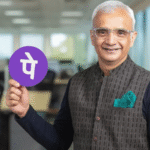Shifting education with the focus from grades and degrees to practical, job-ready competencies

The old traditional education model, where grades and degrees are held out as marks of success, is under increasing scrutiny in the modern job market, where change is fast-paced. Many employers and educators are now questioning whether academic qualifications are a good measure of an individual’s ability to get work done. The emphasis thus shifts to on-the-job competencies instead of grades and degrees as marks of capability.
This change is more than a reaction to the constantly changing nature of the job market. It is part of the larger trend away from the one-size-fits-all model of education. Traditional higher education institutions have, for years, practiced theory without much interest in its application in life. However, since industries are always in flux and new technologies are beating over the old ones, the skills considered to be adequately sufficient are no longer such. The classical education system has been criticized as simply a preparation of students for the dynamic fast-paced nature of most modern careers.
Currently, the demand for practical skills equates with the demand for theoretical knowledge, since most needs are driven by direct applicability to the workplace-a trend that the United States saw with the growing community colleges during the 1960s when schools focused more on providing workforce-oriented education. In today’s world, being a problem solver, critical thinker, flexible-minded, and effective team player is more important than all the other qualities that employers have from a candidate. In most areas such as technology, healthcare, education, and manufacturing, these qualities will supersede the degree or academic achievements of the candidate.
For example, in terms of software development, employers show much more interest in the ability to write efficient code and solve problems rather than in the academic degrees of a candidate. In the digital marketing world, what counts is not the school a candidate graduates from, but the hands-on experience with specific tools and strategies that the candidate has. The trend appears broad in terms of the workforce as the focus has shifted to skill-based hiring because real-world skills are believed to be the best indication of a person’s abilities to add to an organization.
With this change, higher education institutions such as universities and vocational schools also have begun to adapt to the same. Although some professions require degrees, most educational institutions now include practice-based learning through internships, apprenticeships, co-op programs, and project-based learning in their curriculum. These are fast becoming essential parts of the academic journey and help towards applying in the job market. Thus making graduates more competitive and capturing a huge change in the role of higher education.
Another aspect of new paths is skills towards being job-ready, encompassing online learning platforms as well as micro-credentials and certification. These are often more flexible and cheaper options in-line with the needs of an industry but yield quicker acquisition of skills in fields like spoken language, human psychology, digital marketing, data analytics, and cybersecurity among others. Slowly enough, resources are available to acquire the much-needed relevant skills without necessarily going through long processes of a degree.
This emphasis on practical competencies also challenges the ways of assessing students in schools. Grades, which are often assumed to measure a student’s capacity for memorization and recalling information, may not be a good criterion any longer to determine readiness for work. In lieu of grades, more and more assessments today are made to evaluate what students can do with what they know to solve real-world problems and challenges.
Competency-based education, where students can demonstrate mastery over skills before progression, is serving as yet another alternative to traditional tests. Under this approach, the stress would be on how students could deliver what they have been taught. This approach would also give them the value of lifelong learning to their advantage because people will keep learning and honing their competencies when the job market shifts.
The Future of Education and Work
Education and work – will increasingly blend into each other with the understanding that the future of both encompasses job-ready competencies. Its focus is shifting from degrees as an end in themselves to skills that enable people to succeed within a dynamic evolutionary employment landscape. Students would benefit from this change since they would gain a clearer understanding of the practical value of education. Employers would be able to recruit employees who would be effective contributors from day one.
Such a change also has broader social implications. With education being more readily available and, moreover, industry-oriented, there is therefore increased social mobility. No longer do one’s opportunities for professional ambitions have to wait until he or she reaches a traditional educational stage; people can now draw upon varied learning experiences that are essentially fitted to individual needs, interests, and potentially also the objective one has for their careers. This could quite well imply that democratization in education would promote an extremely equitable society where all people from different walks of life can have access to those necessary skills to succeed.
Conclusion
Today, the future of education focuses on building practical, job-ready competencies that will enable people to succeed in this complex, constantly changing world. We can build a workforce more agile and resilient in the face of tough modern jobs by emphasizing real skills rather than grades or degrees. A global workforce that is vibrant and responsive will be created if both educators and employers weigh skills above qualifications.
Author: Akshal Aggarwal, Co-Founder at NatureNurture
Disclaimer: The views expressed in this article are solely those of the author and do not necessarily reflect the opinions or policies of ObserveNow Media. The author is solely responsible for ensuring the accuracy, completeness, and validity of the information presented, encouraging readers to independently verify and seek professional advice if needed.
















